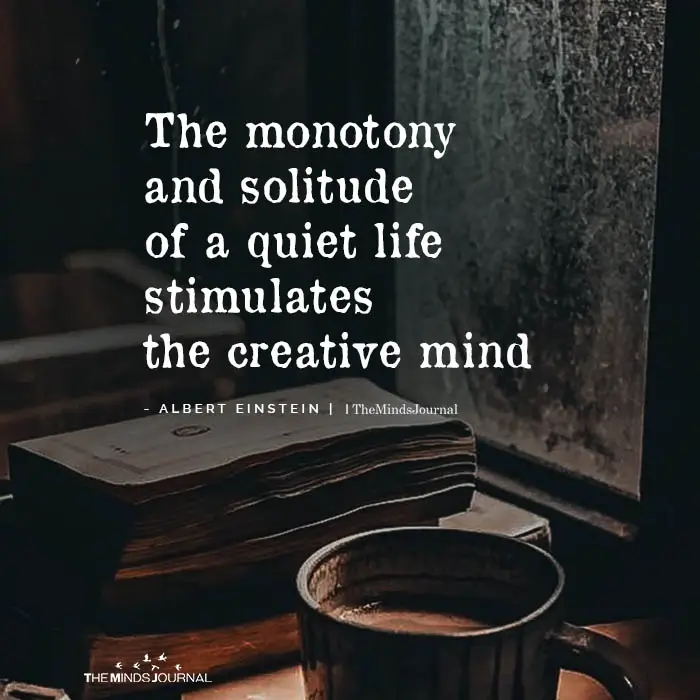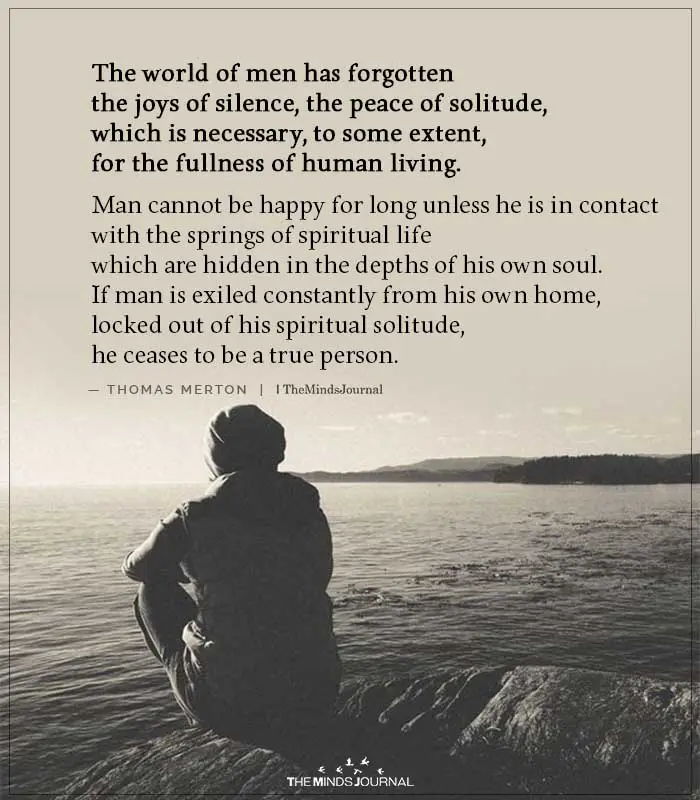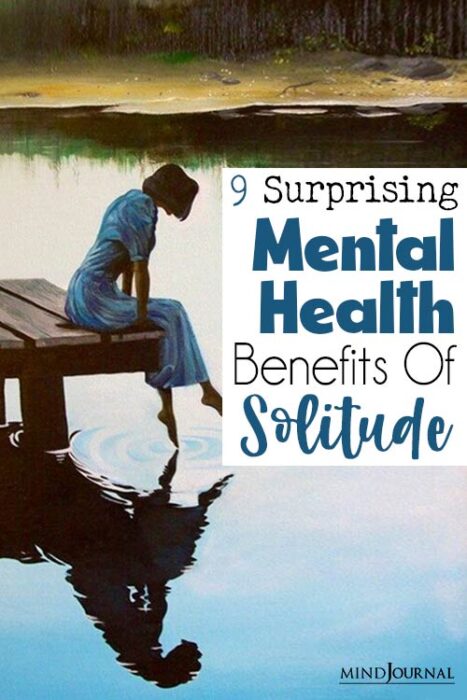Ever sat with yourself in the quiet darkness of the night when the world goes to sleep and stars smile at you? When you are alone with your thoughts, away from the hustle and bustle of daily life, that’s exactly when you start experiencing the benefits of solitude.
In a world that thrives on constant connectivity and noise, it’s easy to overlook the need for silence and solitude. But what if I told you that embracing and cherishing these moments of solitude could have a significant positive impact on your mental well-being?
Let’s explore the importance of solitude and delve into the remarkable mental health benefits of solitude in our lives.
The Need for Solitude

Solitude is essential for our mental well-being as it allows us to reconnect with ourselves on a deeper level. In the hustle and bustle of daily life, we often lose touch with our true desires, values, and aspirations. Solitude provides a space for introspection, self-reflection, and self-discovery.
It offers an opportunity to tune out external influences and distractions, enabling us to understand our own thoughts, emotions, and needs. By embracing solitude, we can cultivate a stronger sense of identity, make informed decisions, and lead a more authentic and fulfilling life.
Related: Loneliness Or Solitude? 5 Social Withdrawal Symptoms And How To Overcome
Mental Health Benefits of Solitude
Ever wondered about the hidden perks of solitude? Here are some of the benefits of solitude and silence and how it nurtures your mental well-being in unexpected ways –
1. Rediscovering Yourself
In the midst of our busy lives, it’s easy to lose sight of who we truly are. Solitude provides us with an opportunity to reconnect with ourselves, away from external influences and distractions.
When we spend time alone, we can reflect on our thoughts, emotions, and aspirations, gaining a deeper understanding of our core values and desires. This self-discovery is crucial for personal growth and cultivating a strong sense of identity.

2. Enhanced Creativity
Have you ever wondered why moments of inspiration often strike when you’re alone? Solitude fosters an environment where creativity flourishes. When we are alone, our minds are free to wander, explore, and make connections that may have otherwise been overlooked.
In the absence of external stimulation, we can tap into our inner creativity, allowing ideas to flow and innovation to thrive. Embracing solitude can unlock a wellspring of imagination and enable us to think outside the box.
3. Improved Emotional Well-being
Solitude provides a sanctuary for emotional healing and rejuvenation. It offers a safe space where we can process and reconcile our emotions without external judgment or interference. In these moments of solitude, we can confront our fears, sadness, or anger, and find solace in our own company.
By acknowledging and understanding our emotions, we can cultivate emotional resilience and develop healthier coping mechanisms, ultimately leading to improved overall well-being.
4. Heightened Self-Awareness
In the midst of the chaos of daily life, we often lose touch with our inner selves. Solitude grants us the opportunity to tune in and listen to our inner voice – the voice that knows our deepest desires, fears, and aspirations.
When we are alone, we can engage in introspection, introspection that allows us to identify our strengths and weaknesses, recognize patterns of behavior, and make conscious decisions about our lives. Through self-awareness, we can grow, evolve, and make positive changes that align with our true selves.

5. Stress Reduction
The frenetic pace of modern life can leave us feeling overwhelmed and stressed. Solitude acts as a powerful antidote to this stress. When we withdraw from the constant demands and distractions of the outside world, we create a space for relaxation and rejuvenation.
Solitude allows our minds to unwind, our bodies to recharge, and our stress levels to decrease. It provides an opportunity to engage in activities that bring us joy and peace, such as reading, writing, meditating, or simply being in nature.
According to a 2023 study, “On days in which people spent more time alone they felt less stress and greater autonomy satisfaction.” Undoubtedly, this is one of the most important mental health benefits of solitude.
Related: The Art of Solitude: 7 Lessons For Modern Times
6. Enhanced Problem-Solving Abilities
When faced with complex challenges, finding solutions can feel like an uphill battle. Solitude can be an invaluable ally in this regard. By disconnecting from the noise and external pressures, we can focus our attention fully on the problem at hand.
Solitude allows us to think deeply, analyze different perspectives, and explore innovative solutions without the distraction of others’ opinions. This concentrated mental effort can lead to enhanced problem-solving abilities and more effective decision-making.

Looking for more benefits of solitude and silence? Keep reading.
7. Improved Relationships
Paradoxically, embracing solitude can actually enhance our relationships with others. When we take the time to nurture our own well-being, we become more self-aware, emotionally resilient, and empathetic.
These qualities enable us to form deeper connections and cultivate healthier relationships with those around us. Solitude also provides an opportunity for us to appreciate the value of human connection, as we recognize the importance of balance between solitude and social interaction.
8. Increased Productivity
In a world filled with constant notifications and distractions, it can be challenging to maintain focus and productivity. Solitude offers a respite from these external interruptions, allowing us to concentrate on our tasks with undivided attention.
By eliminating distractions, we can enter a state of flow, where our productivity soars, and our creativity thrives. Solitude provides the space and time needed to accomplish our goals and pursue our passions with unwavering dedication.

9. Restored Energy and Vitality
In our fast-paced lives, we often neglect our own well-being, leading to exhaustion and burnout. Solitude acts as a reset button, replenishing our energy and revitalizing our spirits. It is a chance to engage in self-care activities that recharge our batteries and restore our vitality.
Whether it’s taking a long walk in nature, practicing mindfulness, or indulging in a hobby, solitude allows us to prioritize our well-being and emerge refreshed, ready to face life’s challenges anew. This is one of the prominent benefits of solitude.
Related: Why Spending Time Alone Makes You More Successful: 7 Science-Backed Reasons
Takeaway

Solitude is a gift we can give ourselves in a world that rarely encourages it. By embracing and cherishing moments of solitude, we unlock a multitude of mental health benefits. From self-discovery and enhanced creativity to improved emotional well-being and stress reduction, solitude offers a transformative power that can positively impact our lives.
So, take a step back from the noise and busyness of everyday life. Embrace solitude, reconnect with yourself, and discover the profound benefits it holds for your mental well-being.
Embrace the power of solitude and embark on a journey of self-discovery, growth, and inner peace.
Frequently Asked Questions (FAQs):
Why is solitude important?
Solitude fosters self-reflection, creativity, and emotional replenishment, enhancing mental well-being and resilience.
What are the benefits of alone time?
Alone time promotes introspection, reduces stress, and boosts creativity, contributing to overall mental health and well-being.
Why does solitude make you stronger?
Solitude cultivates inner strength, clarity of mind, and self-awareness, empowering individuals to navigate life’s challenges more effectively.









Leave a Reply
You must be logged in to post a comment.